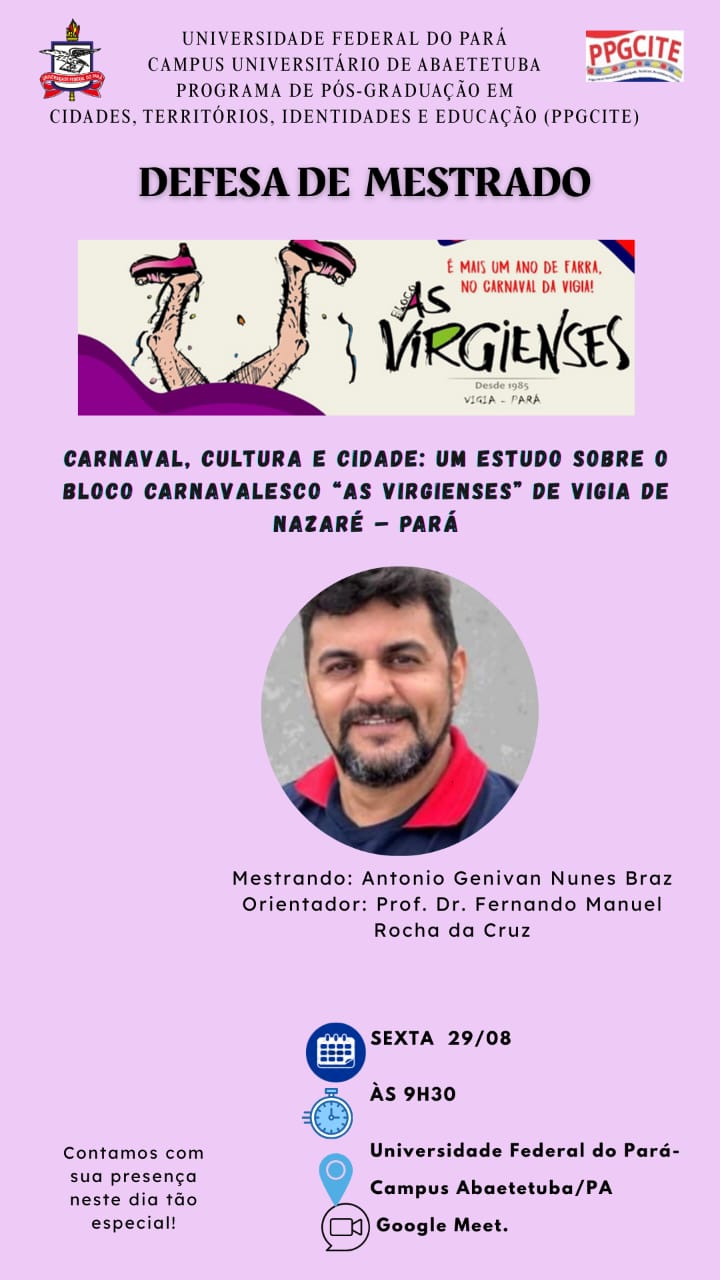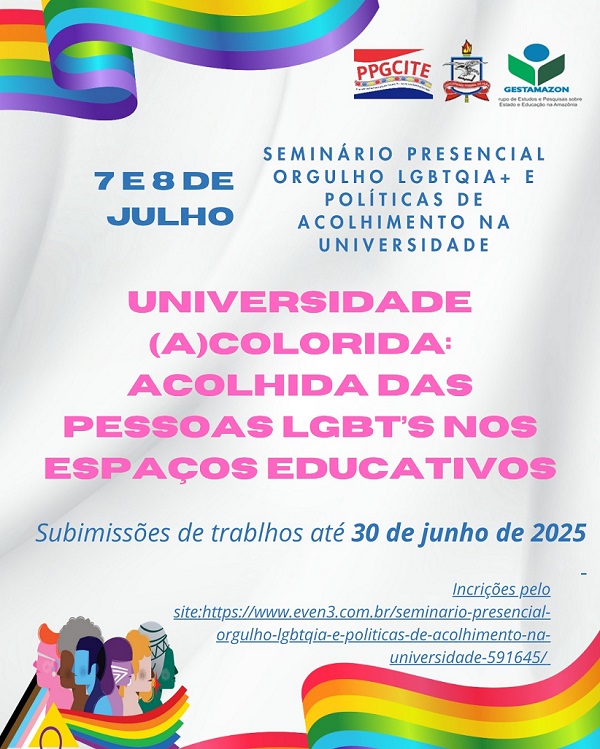Defense of Dissertation by JESSICA COSTA DIAS
A Master's thesis defense panel has been registered by the program.
STUDENT: JESSICA COSTA DIAS
DATE: 03/12/2025
TIME: 09:00
LOCATION: Video conference
TITLE:
EDUCATIONAL POLICIES IN THE TERRITORY OF THE TOCANTINS INTEGRATION REGION: THE CONTRIBUTIONS OF CECAMPE NORTE TO THE CONSOLIDATION AND EXECUTION OF THE DIRECT MONEY TO SCHOOL PROGRAM (PDDE) IN THE MUNICIPALITY OF ACARÁ/PA
KEYWORDS:
CECAMPE; Decentralization; PDDE; Educational Policies.
PAGES: 198
MAJOR AREA: Humanities
AREA: Education
ABSTRACT:
The object of this investigation is the Basic PDDE (Program for Direct Money to Schools) and the actions agreed upon between the FNDE (National Fund for the Development of Education) and the Collaborative Center for Support to the Monitoring and Management of Educational Programs in the Northern Region (CECAMPE Norte), within the field of academic research on public policies for financing education in Brazil. The general objective is to analyze the contributions of CECAMPE Norte to the consolidation and execution of the Direct Money to Schools Program in the municipality of Acará, located in the Lower Tocantins Integration Region, in the state of Pará. The research is based on the assumption that decentralization, as a guideline of the administrative reforms of the Brazilian State since the 1990s, redefined the role of the State and expanded the responsibilities of schools in the management of educational policies. Based on a qualitative approach, the study used document analysis and semi-structured interviews with school administrators and advisors, seeking to understand how CECAMPE Norte has contributed to strengthening the autonomy of the Implementing Units and to improving the financial and pedagogical management of schools. The results indicate that the PDDE (National Program for School Development) is an essential instrument for the maintenance and operation of municipal schools, especially in Amazonian contexts marked by structural and geographical vulnerabilities. The training and advisory actions of CECAMPE Norte proved decisive for improving the execution of the program, providing greater normative clarity, strengthening technical capacities, and expanding social participation in the management of public resources. Therefore, it is considered that CECAMPE Norte has played a fundamental role in consolidating the policy of decentralizing educational funding, acting as a structuring agent for democratic management and the training of administrators. The experience in Acará demonstrates that the PDDE (National Program for School Development), articulated with the actions of the Collaborating Center of the Northern Region, enhances school autonomy and contributes to the realization of a more participatory, transparent, and socially just public education in the Amazon region of Pará.
EXAMINING BOARD MEMBERS:
Internal - 2153593 - AFONSO WELLITON DE SOUSA NASCIMENTO
President - 2479566 - ALEXANDRE AUGUSTO CALS E SOUZA
External to the Program - 393.741.572-68 - MARIA DO SOCORRO VASCONCELOS PEREIRA - UEPA












